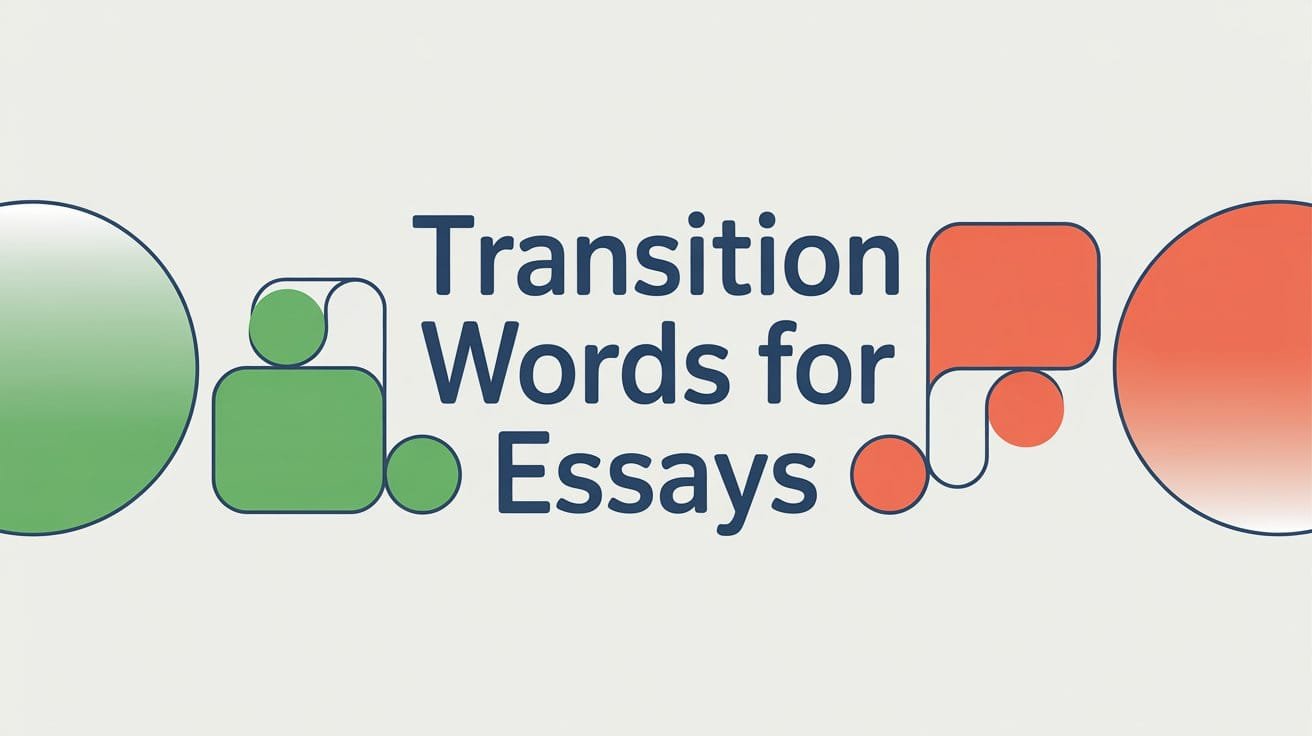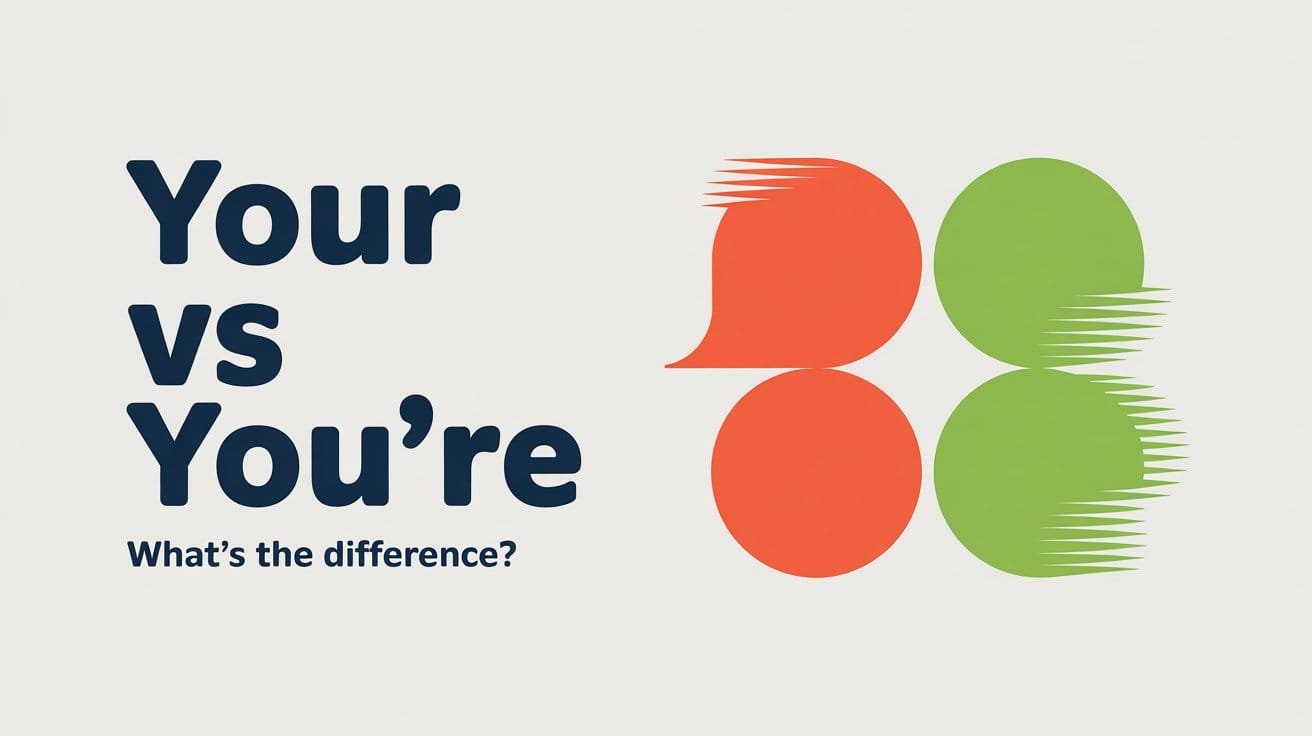Transition words help essays flow from one idea to the next. They show how points are connected, whether you are adding information, showing contrast, explaining a result, or moving toward a conclusion. Without them, an essay can feel choppy, even when the ideas are strong.
In essays, transition words work at two levels. They connect sentences within a paragraph and guide the reader between paragraphs. This helps the reader follow your argument without stopping to figure out how ideas relate.
Using transition words well is about clarity, not quantity. The right transition at the right place makes your essay easier to read and your argument easier to understand.
What Are Transition Words in Essays?
Transition words in essays are words or short phrases that show how ideas relate as an argument develops. They help the reader understand whether a point is adding information, showing contrast, explaining a cause, or moving toward a conclusion.
In an essay, ideas are connected across sentences and paragraphs. Transition words guide that movement. They signal how one point leads into the next instead of leaving the connection unclear.
Example
The study highlights several benefits of remote work, including flexibility and reduced costs.
However, it also raises concerns about communication and team coordination.
The transition word however shows a clear shift in direction. Without it, the change in focus could feel abrupt.
Transition words do not add new ideas. They explain relationships between ideas. When used carefully, they make essays easier to follow and arguments easier to understand.
Where Transition Words Are Used in an Essay
Transition words play different roles depending on where they appear in an essay. Each section uses transitions for a specific purpose, from introducing ideas to closing the discussion.
Transition Words in Essay Introductions
In an introduction, transition words help move the reader from general background information to the main idea. They guide the reader toward the thesis without overwhelming the opening.
Example
Many factors influence student performance, including study habits and learning environments.
However, access to reliable learning resources often has the greatest impact.
Transition Words in Body Paragraphs
In body paragraphs, transition words connect points and show how each idea relates to the argument. They help the reader follow comparisons, contrasts, causes, and sequences.
Example
Online courses offer flexibility for working professionals. In contrast, in-person classes provide more direct interaction and immediate feedback.
Transition Words in Essay Conclusions
In conclusions, transition words help signal that the discussion is coming to an end. They reinforce the main idea and tie the argument together without repeating earlier language.
Example
The evidence supports the need for flexible work policies. Therefore, organizations should rethink traditional office structures.
Common Transition Words Used in Essays
Transition words in essays work best when they match the purpose of the sentence or paragraph. The groups below reflect how transitions are commonly used in essay writing.
Transition Words for Addition / Building Ideas
Use these when a point adds to or expands on the previous idea.
- moreover
- additionally
- also
- further
- in addition
- to begin with
Transition Words for Contrast / Opposition
Use these when ideas differ or present opposing viewpoints.
- however
- in contrast
- on the other hand
- whereas
- nevertheless
Transition Words for Cause and Effect
Use these to explain reasons, results, or outcomes.
- therefore
- as a result
- consequently
- for this reason
- because of this
Transition Words for Examples / Illustration
Use these to introduce evidence, explanations, or supporting details.
- for example
- for instance
- such as
- specifically
- to illustrate
Transition Words for Conclusion / Summary
Use these to signal closure and reinforce the main idea.
- therefore
- in conclusion
- overall
- as a result
- ultimately
Essay Paragraph Examples Using Transition Words
Topic: Online Learning
Introduction
Online learning has become a common part of modern education. Students can attend classes remotely and manage their schedules more independently. However, this flexibility also introduces challenges related to focus and consistency. These challenges often determine whether online learning is effective.
Addition / Building Ideas
Online learning provides flexibility for students with different responsibilities. To begin with, lessons are available at any time, allowing learners to study at their own pace. This accessibility makes online education appealing to those who cannot attend traditional classes regularly.
Contrast / Opposition
Online learning reduces travel time and offers convenience for many students. In contrast, traditional classroom settings encourage direct interaction with instructors and peers. This difference affects how students engage with course material and discussions.
Cause and Effect
Many institutions expanded online learning programs in recent years. As a result, digital platforms were redesigned to support larger classes and interactive features. These changes improved accessibility for students worldwide.
Examples / Illustration
Online learning can support independent study habits. For example, students often manage deadlines and coursework without daily supervision. This structure encourages responsibility and time management.
Conclusion / Summary
Online learning continues to shape how education is delivered. Ultimately, its success depends on how effectively students adapt to self-directed learning. With proper support, it can be a strong alternative to traditional education.
How Many Transition Words Should You Use in an Essay?
There is no fixed number of transition words an essay should include. The right amount depends on how clearly your ideas already connect.
Use transition words when:
- A paragraph shifts direction or introduces contrast
- A new point builds on the previous idea
- You are explaining a cause and its result
- The connection between ideas may not be obvious to the reader
Avoid transition words when:
- Sentences already flow naturally
- The relationship between ideas is clear without help
- You notice the same transition appearing repeatedly
- The transition adds formality but no clarity
A simple guideline works best. Use transition words to explain relationships between ideas. If they improve understanding, keep them. If they do not add clarity, leave them out.
FAQs About Transition Words for Essays
What are good transition words for essays?
Good transition words for essays include moreover, however, therefore, for example, and in conclusion. These words connect ideas smoothly and help guide the reader through your argument.
Where should transition words be placed in an essay?
Transition words are most effective at the beginning of body paragraphs, between sentences that present contrasting or supporting ideas, and in the conclusion to signal closure.
Are transition words the same in essays and everyday writing?
Not always. Essays usually use more formal transition words like therefore, furthermore, nevertheless, while everyday writing may use simpler ones like so, but, or also.
Can I start an essay paragraph with a transition word?
Yes. Starting a body paragraph with a transition word is common in essays. For example: “Furthermore, the evidence supports the claim that renewable energy is cost-effective.”



